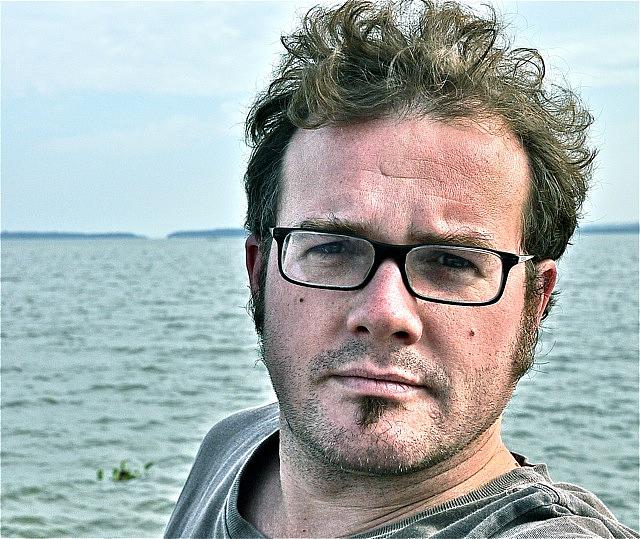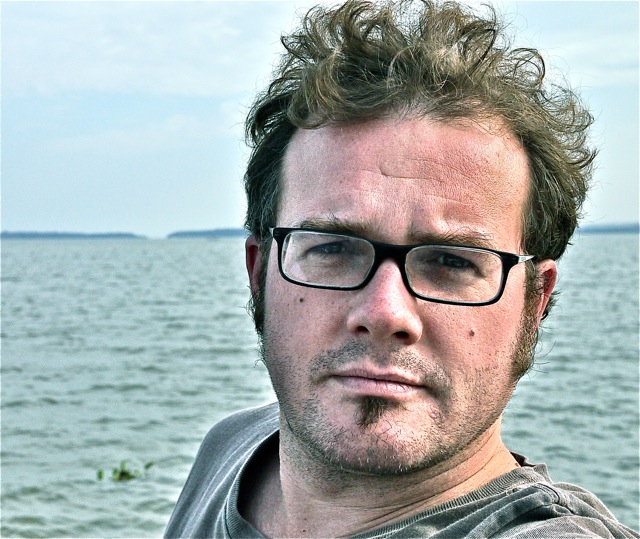Samuel Loewenberg: Making a Living Covering Global Health

Global health journalist Sam Loewenberg is passionate about his work. Health disasters abroad might seem intractable, he says, but the media can play an important role in showing that even the most dire situations can be improved. "This is not a big black hole of misery. This is something we can fix," he said in a phone conversation from his home in Berlin.
Loewenberg has just been named a 2012 Global Health Reporting Nieman Fellow, which will afford him an academic year at Harvard University - where he plans to take classes in the schools of public health and government - and several months to work on a substantial reporting project.
[Find this week's health media jobs and opportunities curated by Kristen Natividad and keep up with Career GPS posts and jobs via RSS or by bookmarking this page.]
How he wants to spend his year has a lot to do with his experiences trying to shed light on big health stories. In 2005, impending famine in Niger was threatening huge swaths of the population. Humanitarian organizations warned six months before the crisis that they needed about $20 million to avoid unnecessary deaths. When the BBC reported the story and American networks picked up the coverage, money started flowing.
"Unfortunately, this didn't get covered until the summer," Loewenberg says. "When the money came, it was much later than it should have been."
He wrote about hunger in Niger again last year in The Lancet, including this passage about the role of the media:
The lack of funding follows a grimly familiar pattern. Just as in the famine of 2005, the hunger crisis this year has received almost no media coverage: one article in The New York Times focused on the coup, one report in The Independent on the UN's expanded appeal, and a 96-word mention in The Guardian. The lack of media attention is directly related to the amount of focus, and funds, that rich governments put towards a crisis, say aid agencies, who term it "the CNN effect". In 2005, the food emergency was virtually ignored until it reached a peak in July as children began starving to death. After footage from the BBC was broadcast in the UK and the USA, millions of dollars began streaming in. Until then, despite more than 6 months of appeals, the only aid was a small grant from Luxembourg.
Too much of American media, he says, avoid tough stories about faraway places because "they think their audience is stupid. American publications tend to be sort of jaded. They think they know it all and have read it all, which is kind of silly," he explains. These days, Loewenberg prefers to write for British publications, such as The Lancet medical journal and The Economist.
While he is passionate about the importance of mass media coverage of health stories around the world, if you really want to get a rise out of Loewenberg you have to ask him about how freelance journalists trying to report on these subjects are treated by media organizations.
And Loewenberg should know. Since he began his career in the early 90s, he's written for many news organizations: The New York Times, The Washington Post, Time, Newsweek, Slate, Fortune, Forbes, Science, the Los Angeles Times, the Chicago Tribune, The Nation, The American Prospect, National Journal, The Guardian, The Times and The Atlantic have all featured his byline. He has also produced and reported for the PBS programs World Focus and NOW with Bill Moyers.

So it's hard to imagine that he still faces "an uphill battle" to place important stories in the American press. If you search the subject headings of his emails for "proposal," you'll get 1,000 hits, he explains. Making a living as a freelancer is hard work.
"It's a terrible problem," Loewenberg says. "If you're doing serious journalism of any sort, it's a hideous, terrible problem for a journalist trying to make a living."
He is quick to say, however, that a lot of people treat freelancers well - poor compensation and abuse is not endemic to everyone - but more media organization than you might think "pay badly and treat you badly," he says. "People try to take advantage of you all the time. I've had it happened quite recently. It's nuts. I don't know how these people look at themselves in the mirror."
Take kill fees, when an editor commissions a piece and then decides not to run it and pays only a fraction of the fee to the freelance journalist who completed it. "If you're a babysitter or a contractor or a lawyer and I contract you to do something - what other job do they try to not pay you?" Loewenberg asks with disbelief. Endless rewrites don't cost news organizations anything. "The number of times that they take advantage of you - it happens over and over again to me."
"These days, I try to work for people I know. I can't stand the hassle of doing it with new people," he says.
But there is a silver lining. Loewenberg has created a career where he writes stories he thinks are important. He has found support and funding in numerous grants and fellowships. He has a masters in journalism from Columbia University, where he was a Knight-Bagehot Journalism Fellow in Business and Economics, and spent time as a doctoral student in American Studies at New York University, where he was a MacCracken Fellow. He's received two grants from the Pulitzer Center on Crisis Reporting to cover hunger in Guatemala and maternal mortality in Mexico. In 2001, he won a grant from the German Marshall Fund to report on American companies that lobby in Europe.
"I go through the different stages of grief and depression and anger, and then I just kind of go for it," he says. "You need to find ways to get funding to do your stuff. You have to be creative and look everywhere and look in unusual places. That's part of what the game is if you're going to be a freelancer."

